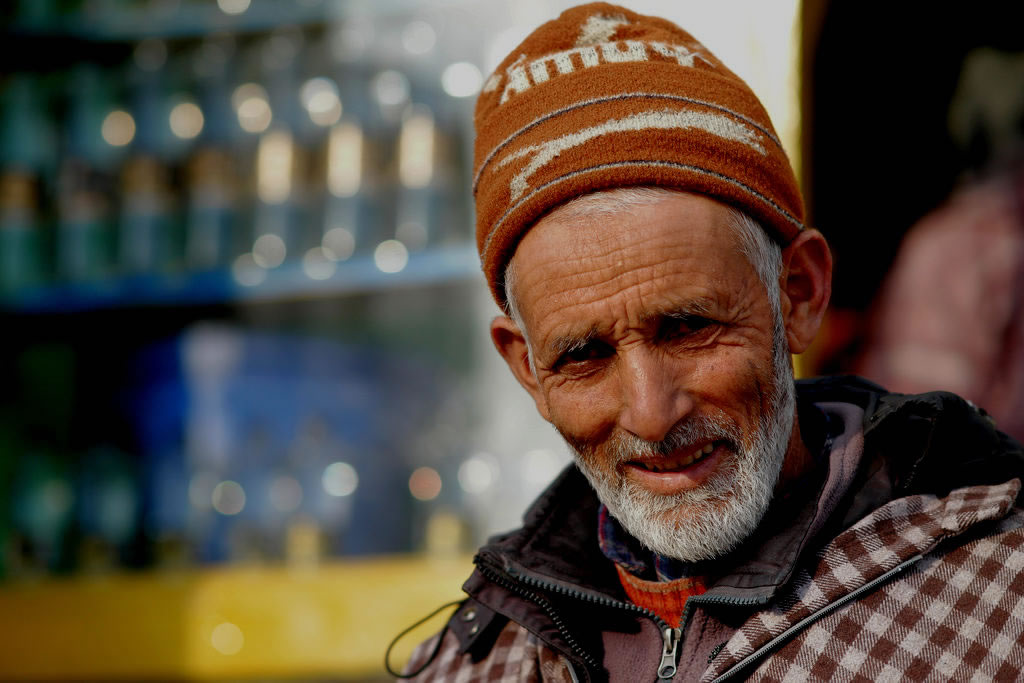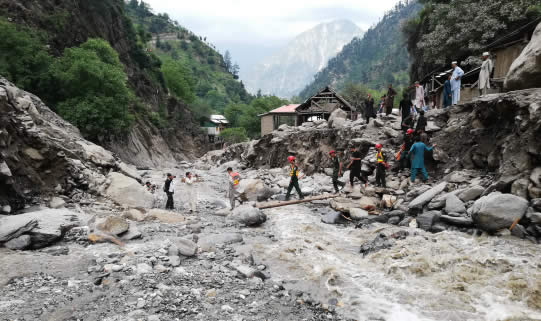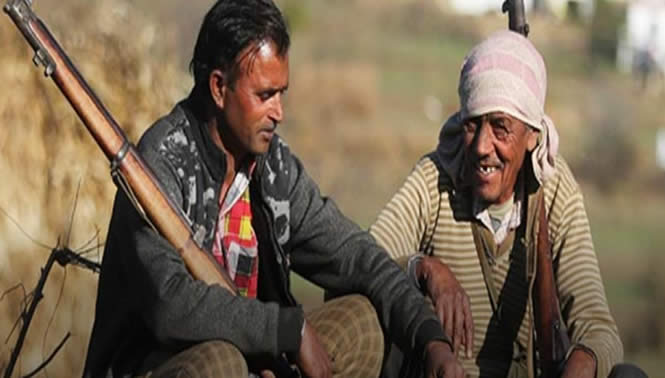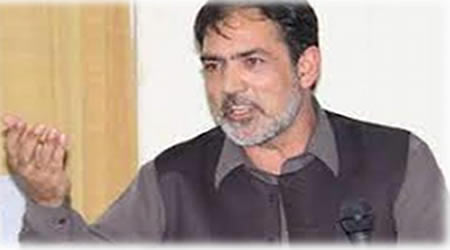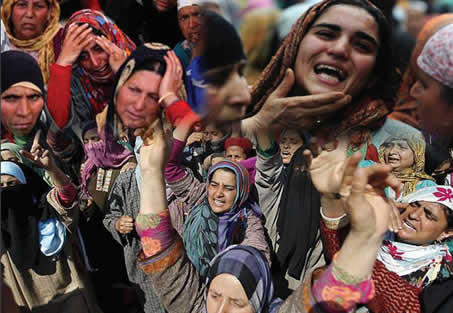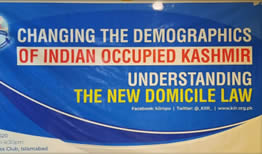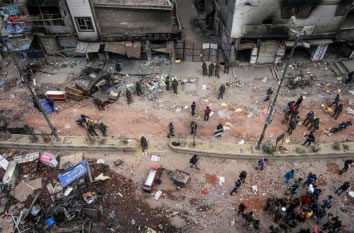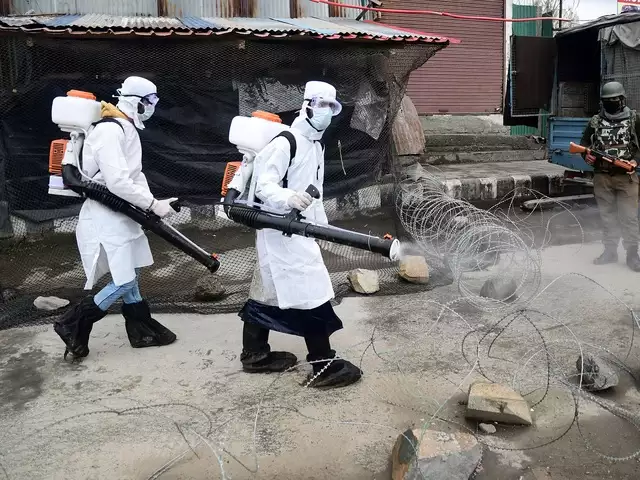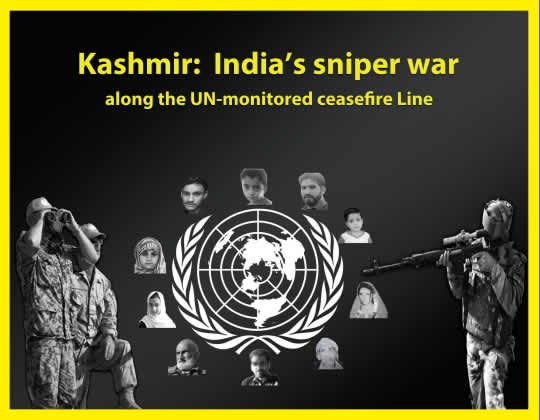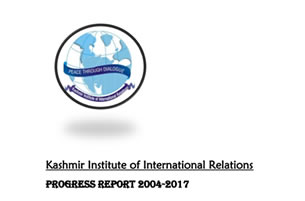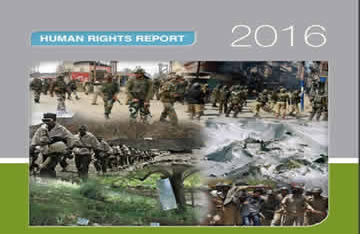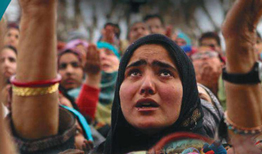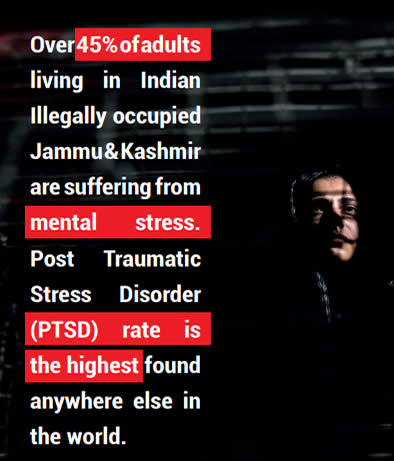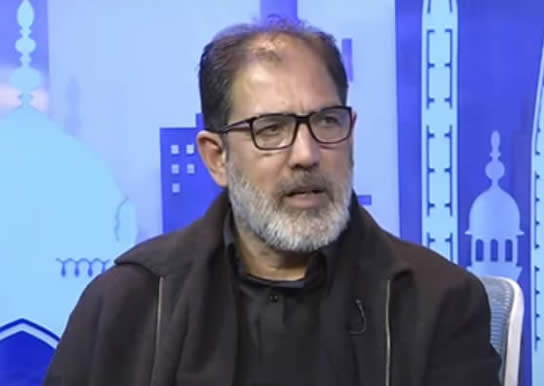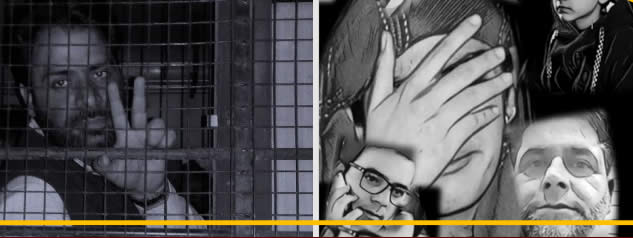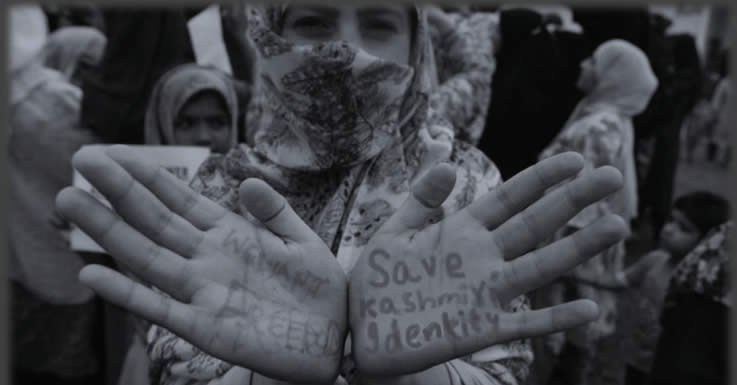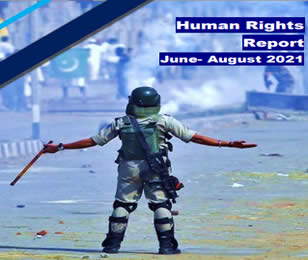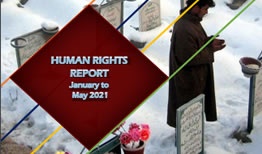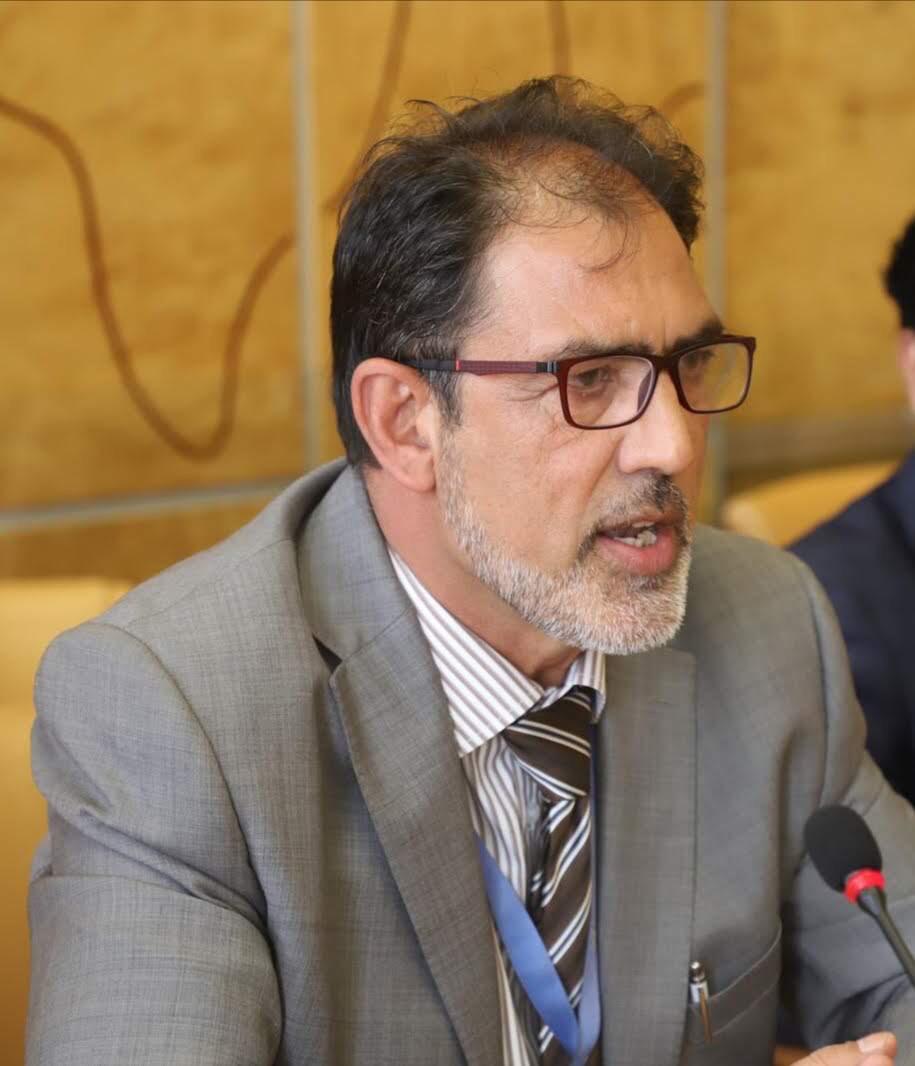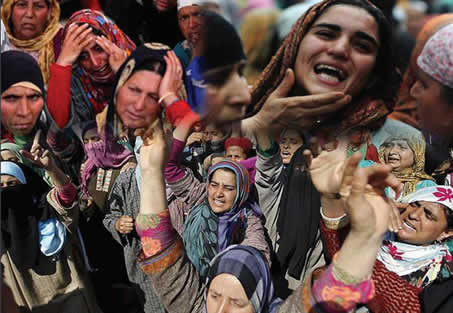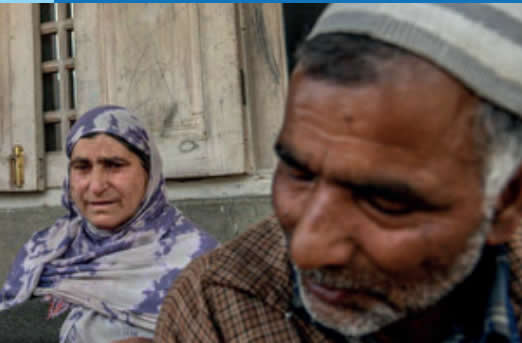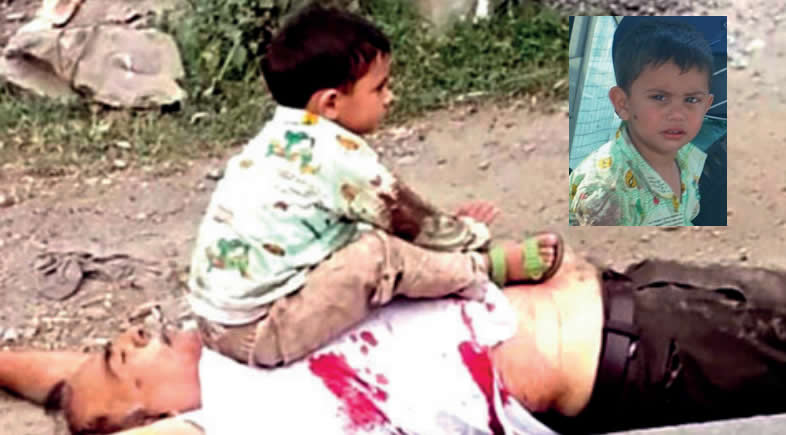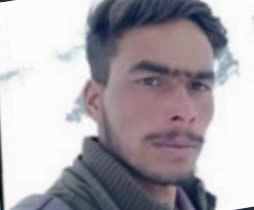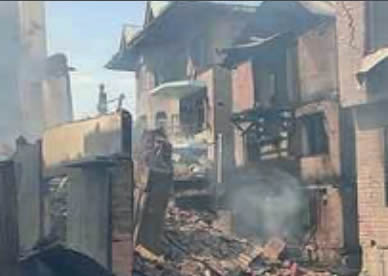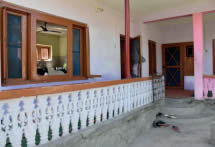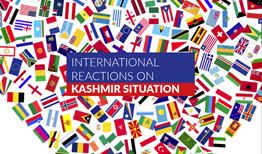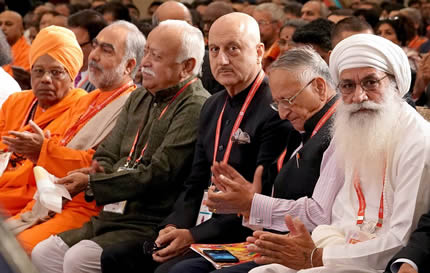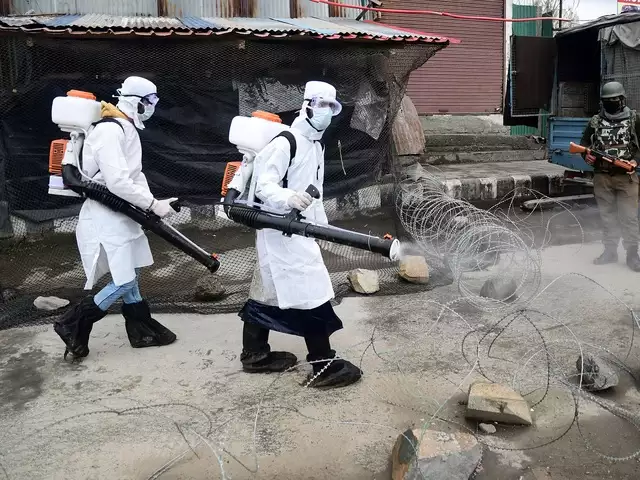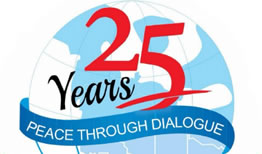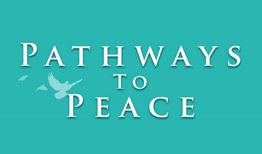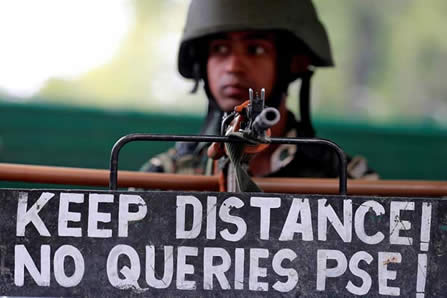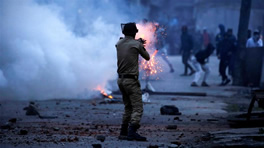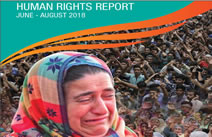Mental Health in Occupied Jammu & Kashmir
|
INTRODUCTION
The Kashmir conflict has been characterized by the systematic violation of the human rights of the civilians, through different forms of violence. The conflict has not only been affecting people of IIOJK physically, but also mentally and psychologically. The impact of decades long conflict on people are diverse, including moral, emotional and health, all related to mental health. The psychological damage from decades of lowintensity conflict and persistent trauma from war-related violence is widespread in Kashmir. The civilian population is at a massive risk of torture, rape and sexual assault, executions, detentions, death of family members, destruction of property, disappearances, loss of organs and poverty among others.
The prolonged political turmoil in the Kashmir valley has affected the psychological well-being of the local population. During the last three decades, over 100,000 people have died due to the armed conflict. IIOJK witnessed more than 8000 cases of enforced disappearances and various other human rights abuses on daily basis. The frequent curfews and lockdowns after the abrogation of Article 37 in 2019 have further traumatized the people of Kashmir and exacerbated mental health problems in the region. One study found that 45% of Kashmir’s adult population (1.8 million) was suffering from some form of mental distress. There is a high prevalence of depression (41%), anxiety (26%), post-traumatic stress disorder (19%), and 47% had experienced some sort of trauma. Another study found that the prevalence of childhood disorders was 22–27% (aged 8–14 years). A retrospective study on suicide recorded an increase of more than 250% in the number of suicide attempts between 1994 and 2012. Like many parts of the world, there is a strong stigma in Kashmir against mental health treatment, with victims often afraid to seek psychiatric care for fear of being labelled as insane. It is estimated that only about 10 percent of people with mental health issues receive treatment.
Women in Kashmir are prone to mental illness because of the role that Kashmiri women play in their society. Muslim areas largely view the concept of widow remarriage, so often women whose husbands have died or disappeared are unable to remarry. A study found that 91 percent of widows in the Valley surveyed have not considered remarriage.
Indian occupied Jammu & Kashmir is already rife with poverty and many residents have little medical care. Mental health is an essential element when it comes to determining well-being and Kashmiri people suffer from extremely high rates of mental illness. The vulnerable citizens in combat zones do not adapt to continued violence, but that exacerbate mental illness and the breakdown of a society already on its edge.
This report attempts to identify the impacts and consequences of conflict on mental health of the people of IIOJK and understanding such damage as emotional, moral, and alterations to mental health.
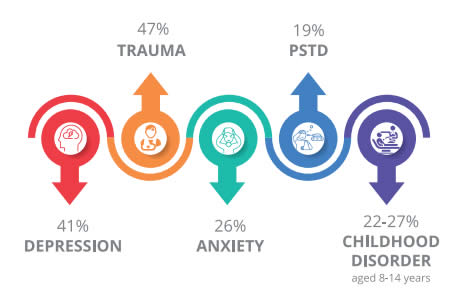
45% of Kashmir’s adult population (1.8 million) was suffering from some form of mental distress
Details of Healthcare Facilities in Jammu and Kashmir1
|
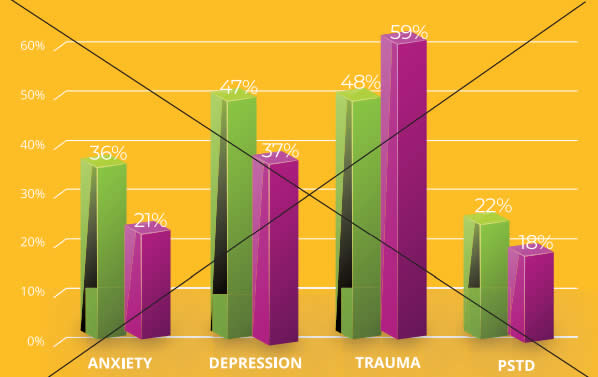
• Mental Illness Men in IIOJK • Mental Illness Men in IIOJK
Mental Illness among Men & Women in IIOJK
Indian Illegally Occupied Jammu & Kashmir (An Open Air Prison)
Ever imagined spending life in war from the day of birth? If you look at Kashmir, it seems no less than heaven from the eye of a tourist but for the residents of Kashmir there is a different life, people over there are living their life in an uncertainty. Military operations routinely, curfew, raids, communication barriers, detention, and fake encounters are part of the life of the people of Kashmir. Spending their lives in this situation has negatively affected their physical as well as mental wellbeing.3
Even before the abrogation of Article 370, life in Kashmir was not normal as it should be. Protests and activities for the right to self-determination remained a never-ending struggle over there. And Indian government always tried to quell this unarmed struggle with the help of heavily equipped troops. Kashmiris are facing resistance by Indian forces in their struggle for the right to self-determination for more than seven decades but the situation has worsened after the abrogation of Article 370 since August 5, 2019.
There was complete restriction on movement of people to different areas, the communication ban to suppress the voices and social life, it was the longest internet ban and strict lockdown imposed by a country which prides itself as the largest democracy of the world. So many prominent leaders of Kashmir were detained, some of them died in custody while some are still detained in their houses. Thousands of extra troops were deployed in Kashmir valley to resist the protests by Kashmiri people. Residents were not allowed to leave their homes, schools and offices were shut down until the February 2020, after this India got the opportunity of COVID19 lockdown in Kashmir. Residents of Kashmir have lost their hopes for a normal life ever again. Security activities on daily basis like the cordon-and-search operation (CASO) and raids destroy homes of people and this damage of civilian property has increased during the COVID-19 lockdown.
We’re already Witnessing Three Pandemics Currently:Covid-19, Mental Health Issues and Economic Deprivation due to LockdownThe Institute of Mental Health and Neurosciences Kashmir reported over 77,000 patients in 2020 related to mental health issues. We see 5 to 6 patients with mental health issues because of Covid-19 every day. And that’s huge for us, as mental health problems mostly show an iceberg phenomenon. Severe anxiety and depression are the common issues in pandemic. And most of the patients come from families who lost their members due to Covid, since they couldn’t share the grief after the loss of their loved ones. Also, young entrepreneurs who lost their business due to lockdown are also arriving for the checkup.Dr Arshad Hussain, Psychiatrist and Professor at the Institute of Mental Health & Neurosciences (IMHANS), Government Medical College, Srinagar
Life Under Siege The ongoing siege and human rights violations in Kashmir are targeting only the Muslimmajority of the region, the Muslim community of Kashmir has become a sacrificial animal at the altar of the agenda of Hindu nationalist party BJP. Detention, Torture, sexual violence, forced disappearances, and extra-judicial killings are common in Kashmir. These human rights violations have created a sense of mental instability, terror and hopelessness among the people. A young girl in an interview with BCC Urdu says; “I don’t think I have met a single person of my age group who is not suffering from anxiety, fear, and insecurity. Nobody will say that they are feeling safe in these situations”. 4 Another teenage boy says; “we were already facing a strict lockdown before Covid19, yet another lockdown was imposed on us which severely affected the livelihood, physical and mental health”. A girl says; “We are not allowed to socialize; internet and mobile service remain blocked mostly. There is no other way to get away with this stress while living in the lockdown, the internet was the only way to create a social circle but that is also being shut down by authorities”. 5 I Indian authorities have deployed a huge number of armed forces, paramilitary forces, troops, and other infamous agencies to conduct fake operations and terrorize the people of Kashmir. A youth, living his life in the terror of occupying forces, tells; “When the Army convoy moves, the public movement is sieged nobody is allowed to go anywhere. These events are picturized in our minds with a feeling of terror that we are not even able to walk freely on our land”. 6 Kashmiris faced complete lockdown since August 5, 2019, after revocation of Article 370 and 35A of the constitution and when people of Kashmir were just trying to come out of that lockdown, Indian authorities got an opportunity to impose Covid lockdown in March 2020 after almost a year of curfew and strict lockdown in Jammu & Kashmir. A humanitarian worker, who requested anonymity, communicated with the TIME news agency of the USA about two lockdowns faced by the people of Jammu & Kashmir; “The only transition has been the change of terminologies, he added “It is all aimed at crippling the voices and struggle of the people of Kashmir. This pandemic has been an extension of the same lockdowns; nothing has changed on the ground. People are still being harassed and journalists are being suppressed.” Indian authorities used the COVID19 lockdown as a tool to impose their unlawful acts and policies in the name of the pandemic. So, the lockdown extension was used as a democratic advantage rather than the pandemic prevention tool Mishi Choudhary, the legal director at the Software Freedom Law Center (a group that campaigns for Internet freedoms), says; “Even in 21st century, in the middle of a global pandemic, millions of people can be deprived of access to education, livelihood, entertainment, and mental health respite through a medium (Covid19 Lockdown) that has become an essential service for the rest of the world, even democracies can kill the switch and take away all human rights.” Mental & Maternal Health of Kashmiri Women The mental stress due to ongoing conflict has taken a toll on the physical health of young women, especially their maternal health. Infertility is becoming increasingly common among young Kashmiri women, who are suffering from stress and trauma due to the long-standing conflict in the region. Physical and mental health experts cite conflict-related stress as the main cause of the health crisis among women, which has robbed thousands of their fertility. The most recent Indian National Family Health Survey (NFHS) indicates that 61 percent of currently married Kashmiri women report one or more reproductive health problems. This is significantly higher in comparison to the national average of 39 percent. The percentage of POF among infertile women below 40 years of age is also abnormally high – 20 to 50 percent – when compared to the nationwide rate of one to five percent. Stress causes structural changes in the brain and disturbs the secretion of various neurotransmitters. These changes lead to various physical ailments including thyroid malfunction, which in turn can cause infertility among women of childbearing age. In Kashmir, psychiatry OPDs are run at two hospitals – the Shri Maharaja Hari Singh (S.M.H.S) facility in Srinagar, and the Government Psychiatric Diseases hospital – six days a week. Of almost 100 patients seen at each OPD every day, 75 are females. A study conducted by Sher-iKashmir Institute of Medical Sciences (SKIMS), the major tertiary healthcare facility in Kashmir, on 112 women with PCOS, found that 65 to 70 percent of them had psychiatric illnesses including PTSD, depression and Obsessive Compulsive Disorder (OCD). The young girls mostly complain of obesity and ovulatory disturbances that bring a temporary halt in their menstrual cycles. The condition is called Central Hypogonadism and is common in depressed women, explains the doctor. Another equally frequent ailment is galactorrhea, a spontaneous secretion of milk from the mammary glands due to an abnormal increase of prolactin levels in the body caused by antidepressant intake. Dissociative Disorders (DD), marked by disruptions or breakdowns in identity, memory or perception, are rapidly increasing in young school- and college-going girls, along with conditions like Panic Disorder, all of which interrupt the “smooth journey to motherhood. |
‘I Cannot Close my Eyes without Envisioning the Face of my Son.’Jameela Banu, mother ofIshtiyaq Ahamad Khanday 15 years old, Ishtiyaq Ahmad Khanday was killed by Indian Army in Anantnag on June 29, 2010, in a private compound. After eleven years of this incident, his mother Jameela Banu has still been unable to sleep alone in her house since witnessing her son’s death. She spends the day walking through the house, closing and locking windows and doors repeatedly. Her husband, Ghulam Ahmad Khanday, took her to doctors and eventually to a psychiatric hospital in Srinagar, the capital of Indian-administered Kashmir. She was diagnosed with depression and post-traumatic stress disorder (PTSD) and is still undergoing treatment. |
Related Reports
